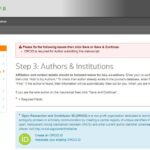This week, we read about suggested principles for monitoring and evaluating open science developments, about Frontiers’ positive response to a US bill to increase access to AI research, and about the introduction of PLSPs by T&F. We learn about how universities can educate researchers on predatory journals and about a sustainability roadmap for scientific publishing. We also read about transformative agreements signed by the Royal Society of Chemistry in North America. Finally, we learn about advocacy for clinical trial transparency in Germany and we highlight an upcoming HIFA global survey and launch event.
To read:
Monitoring and evaluating the progress of open science based on values and outcomes via London School of Economics | 7-minute read
With the increasing prevalence and diversity of open science, monitoring and evaluating its development is a complicated matter. This blog post emphasizes that more open science does not automatically lead to positive outcomes and that new monitoring strategies stemming from transformative innovation policies should be applied to open science through the threefold lens of learning, directionality and outcomes. Furthermore, the blog post argues that monitoring open science should be value-driven, emphasizing its impact on research integrity, equity and societal values.
Bill to increase access to AI research receives positive response from Frontiers via Frontiers Science News | 2-minute read
A bipartisan bill in the USA, titled the Creating Resources for Every American To Experiment with Artificial Intelligence Act (CREATE AI Act), was introduced by senators in July 2023 and is aimed at widening public access to research on AI. The bill proposes to establish a national infrastructure to make AI data and resources accessible and freely available to all, including students, scientists and academics. Frontiers applauds this effort, which aligns with the publisher’s commitment to open science and the importance of accessibility for scientific and societal progress.
New initiative provides plain language summaries of published research via STM Publishing News | 2-minute read
Taylor & Francis (T&F) have introduced plain language summaries of publications (PLSPs) as a potential article type in their journals. PLSPs are peer-reviewed, open access articles written in a non-technical manner that can be more easily understood by a general audience. Each PLSP will be able to summarize research from any peer-reviewed journal, will have a unique digital object identifier (DOI), and will have the functionality to incorporate both text and images. T&F hope that introducing PLSPs will support patients, the public, healthcare professionals and policymakers in keeping abreast of recent research findings while encouraging shared decision-making.
How universities can help researchers avoid predatory journals via Nature | 4-minute read
Predatory journals charge researchers to publish their articles but lack proper quality control and peer review. This article by Chérifa Boukacem-Zeghmouri (Professor in Information and Communication Sciences at Claude Bernard University Lyon 1) presents the scale of the problem. A recent survey revealed issues such as ignorance of researchers in low- and middle-income countries as well as the desire for speed in a publish-or-perish culture. Chérifa urges institutions to educate and protect researchers from such encounters with predatory journals, calling for more open access publishing options, international partnerships and educational resources in local languages, as well as broader determinants of career success.
New STM roadmap provides guidance for more sustainable publishing via The Scholarly Kitchen | 5-minute read
Outlining the importance of the 17 sustainable development goals (SDGs) advocated by the United Nations in academic publishing, this article by Rachel Martin (Global Director of Sustainability at Elsevier) discusses a recently introduced roadmap for publishers to implement to achieve greater sustainability. The SDG sustainability roadmap has three levels, with links, resources and suggestions for navigating the sustainability landscape while addressing global challenges.
RSC transformative agreements in North America via STM Publishing News | 4-minute read
The Royal Society of Chemistry (RSC) has established transformative agreements with 28 North American institutions in 2023 so far. This includes their first read-and-publish deals with partners in Canada and Mexico, bringing the RSC’s total number of transformative agreements in the region to 35. This increase follows the US Office of Science and Technology’s open access mandate for federally funded research and the RSC’s own commitment to make quality research widely available through open access transformation.
Patient groups in Germany push for legal requirement to disclose clinical trial results via Transparimed | 3-minute read
Responding to the lack of public access to clinical trial data in Germany, the national patient support and advocacy group Deutsche Stiftung Patientenschutz has urged the German government to legally guarantee the registration of all clinical trials and the public disclosure of their results. Similar sentiments were expressed by BAG Selbsthilfe, an umbrella group representing German disability and chronic disease support groups. With mixed responses from political parties, the issue remains unresolved.
To engage with:
HIFA global survey and launch event via HIFA
Health Information For All (HIFA) is launching a global survey titled Universal access to reliable healthcare information: global stakeholder consultation, in partnership with the World Health Organization. The launch event for this global survey will take place on 21 August 2023 and will be chaired by HIFA steering group member Joseph Ana. The event will also include a short presentation from Neil Pakenham-Walsh (Coordinator at HIFA) as well as an opportunity for questions and discussion. There is no need to register, and you can join the event via the link in this page.
Enjoy reading our content? Then make sure to follow us on Twitter and LinkedIn for regular updates!






